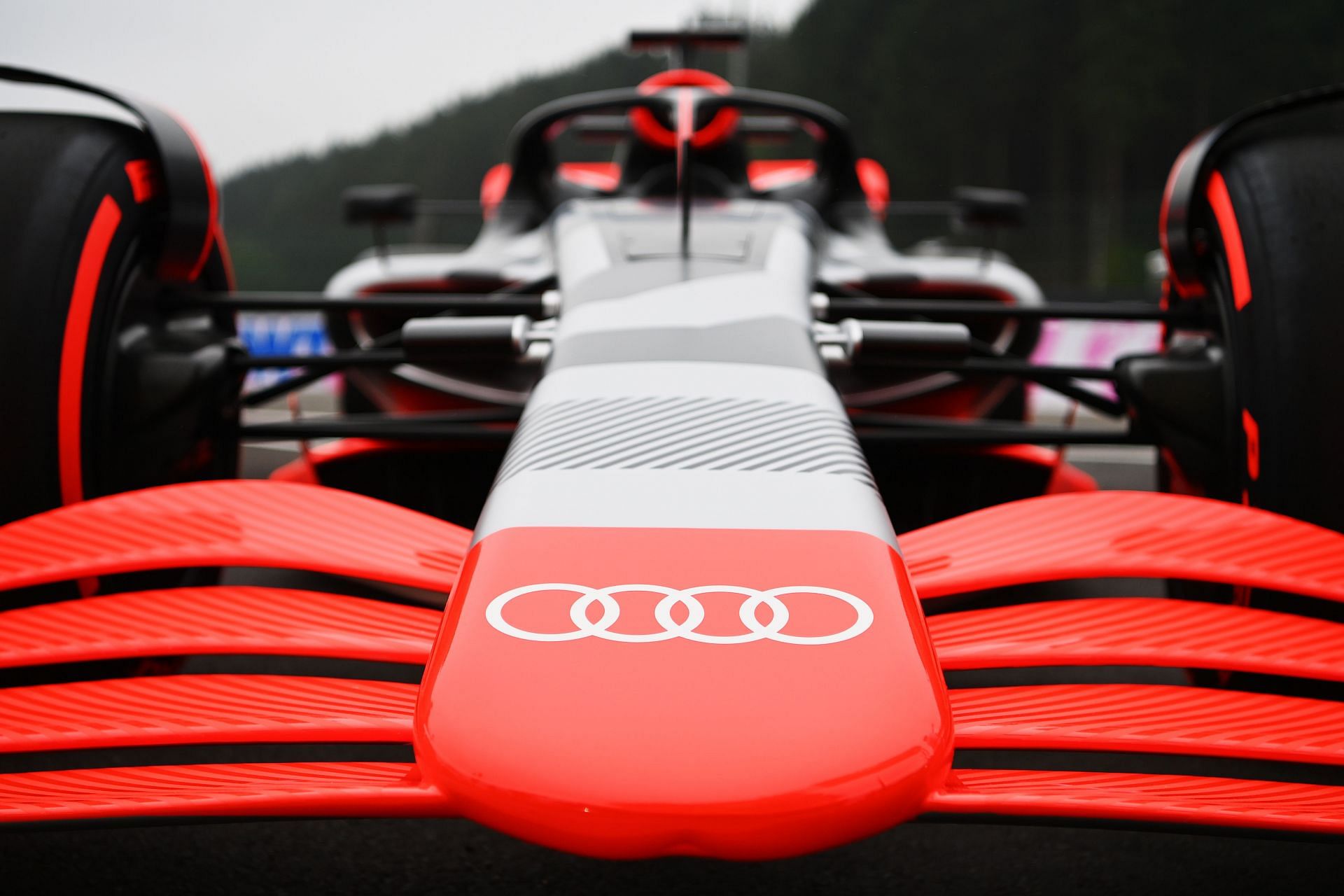
F1 'getting stronger and stronger' with Audi's entry, says two-time world champion
F1 is getting stronger and stronger with Audi's impending arrival into the sport, according to two-time F1 world champion Mika Hakkinen.
Hakkinen raced in F1 from 1991 to 2001 and won consecutive Drivers' World Championships with McLaren in 1998 and 1999.
The 2026 F1 Power Unit (PU) regulations have finally been approved and confirmed by the FIA after extensive deliberations. The FIA signed off on the new regulations during the latest World Motorsport Council Meeting after being satisfied with the framework in place for the changes planned.
Audi was already in talks to join the sport and following the confirmation of new rules that aim to reduce fossil fuel usage and promote sustainability in racing, the move makes more sense for one of the leading car manufacturers in the world.
Reports suggest the German company is set to acquire a stake in Sauber's F1 operations, with their deal with Alfa Romeo set to end following the 2023 season.
Hakkinen feels that the inclusion of Audi will only enhance F1's image and credibility going forward. In his column for Unibet following the 2022 F1 Belgian GP, the Finn wrote:
“Formula 1 is getting stronger and stronger and Audi’s decision to join the World Championship in 2026 is a really significant moment. Although they have only announced an engine programme to start with, I understand they plan to partner with, or buy, a team, placing Audi in direct competition with the Mercedes, Ferrari and Red Bull. It’s going to be fantastic to see.”
The 53-year-old went on to add:
“I see this as a result of the great work Formula 1 has done in recent years, growing the popularity of the sport through series like Drive to Survive on Netflix, the growth of social media and work which has been done to improve the competition. The 2026 engine regulations are also attractive because the engines will have almost half their power from electric energy and we will see fossil fuels replaced by green, sustainable fuel. Clearly this is attractive to a large car manufacturer like Audi, a brilliant piece of work by F1 and the FIA.”
What are the key changes in the 2026 F1 Power Unit regulations?
F1 plans to chart a course towards a more sustainable future with the new PU regulations that could be a major step in making the sport more ecologically responsible.
The updated next-generation PUs will retain the V6 engines and aim to deliver similar performance while being sustainable by using less energy and producing net zero carbon emissions.
The new PUs will be designed in a way to allow the usage of 100% sustainable fuels to ensure no new carbon is burnt during operation. The sport intends to try and extract carbon from genuine food waste, non-food biological resources, and even directly from the atmosphere.
F1 is also revamping the fuel flow system for PUs, moving away from the current maximum mass flow rate to a maximum energy flow rate to be more efficient. This, in conjunction with more reliance on electric power, will reduce the fuel load for all cars in the future.
The maximum fuel allowance in 2013 was 160 kg and dropped to the current standard of 100 kg in 2020. Once the new PUs come in, this could drop to between 70-80 kg while still maintaining the same level of power output.
The V6 Turbo Hybrid PU currently in use will go through an evolution when the new regulations kick in in 2026. The Motor Generator Unit-Heat (MGU-H) will be dropped from the Energy Recovery System (ERS). The Motor Generator Unit-Kinetic (MGU-K), however, will get a major bump in power from its current capacity of 120 kW to 350 kW. F1 hopes this will allow the new PUs to produce as much as 1000 hp through this technology.
The aforementioned MGU-K will also be relocated for safety purposes. Under the new regulations, it will be housed inside the Safety Cell within the chassis, beside the battery pack and control electronics.
The sport also plans to introduce a separate budget cap for PU development only and expects costs to be lowered by removing components like the MGU-H. They also intend to standardize certain parts to come from a single source to keep spending by all teams from spiraling out of control.
All these changes could also herald the return of turbo lag and make life difficult for drivers on track, especially in corner exits. This could prove to be a challenge for them to adapt to and eventually overcome. Strategizing will also be equally vital.
Recycling batteries will be mandatory under the new regulations as the sport tries to move towards the future sustainably and responsibly.
While Audi has confirmed that they will be joining the sport in 2026, Porsche's potential partnership with Red Bull has still not been confirmed at the time of writing this.